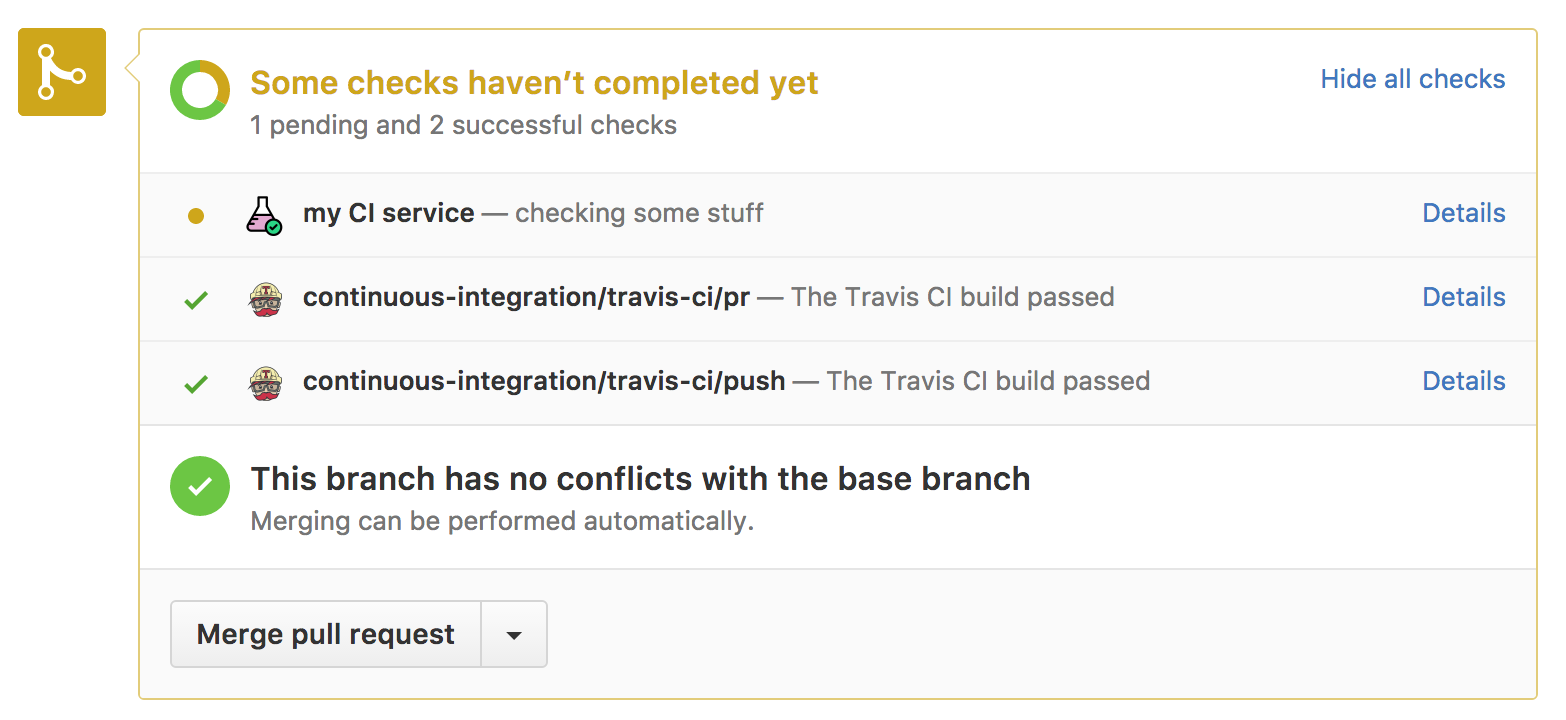
Security News
Research
Data Theft Repackaged: A Case Study in Malicious Wrapper Packages on npm
The Socket Research Team breaks down a malicious wrapper package that uses obfuscation to harvest credentials and exfiltrate sensitive data.
github-build
Advanced tools

Github builds/checks for CI


npm install github-build --save
const Build = require('github-build')
const data = {
repo: 'siddharthkp/github-build', // (author/repo)
sha: '6954e71d46be1ae9b0529aae6e00b64d7a1023d4', // (commit sha)
token: 'secret', // (github oauth token: https://developer.github.com/v3/oauth)
label: 'my CI service',
description: 'checking some stuff',
url: 'http://my-ci-service.com/builds/1', // details url
}
/* Create a build */
const build = new Build(data)
/* When you call start, a pending status get's added on github (returns a promise) */
build.start()
/* Run your tests */
/* If things go well, call pass, it will mark change the status to success ✅ (returns a promise) */
build.pass()
/* Or if the tests fail, mark this build as failed ❌ (returns a promise) */
build.fail()
/* If you could not run the tests because of incorrect config, just error out the build (returns a promise) */
build.error() // use when build errors out (returns a promise)
If you like it then you should put a ⭐️ on it
MIT © siddharthkp
FAQs
Github builds/checks for CI
The npm package github-build receives a total of 33,880 weekly downloads. As such, github-build popularity was classified as popular.
We found that github-build demonstrated a not healthy version release cadence and project activity because the last version was released a year ago. It has 1 open source maintainer collaborating on the project.
Did you know?

Socket for GitHub automatically highlights issues in each pull request and monitors the health of all your open source dependencies. Discover the contents of your packages and block harmful activity before you install or update your dependencies.

Security News
Research
The Socket Research Team breaks down a malicious wrapper package that uses obfuscation to harvest credentials and exfiltrate sensitive data.

Research
Security News
Attackers used a malicious npm package typosquatting a popular ESLint plugin to steal sensitive data, execute commands, and exploit developer systems.

Security News
The Ultralytics' PyPI Package was compromised four times in one weekend through GitHub Actions cache poisoning and failure to rotate previously compromised API tokens.